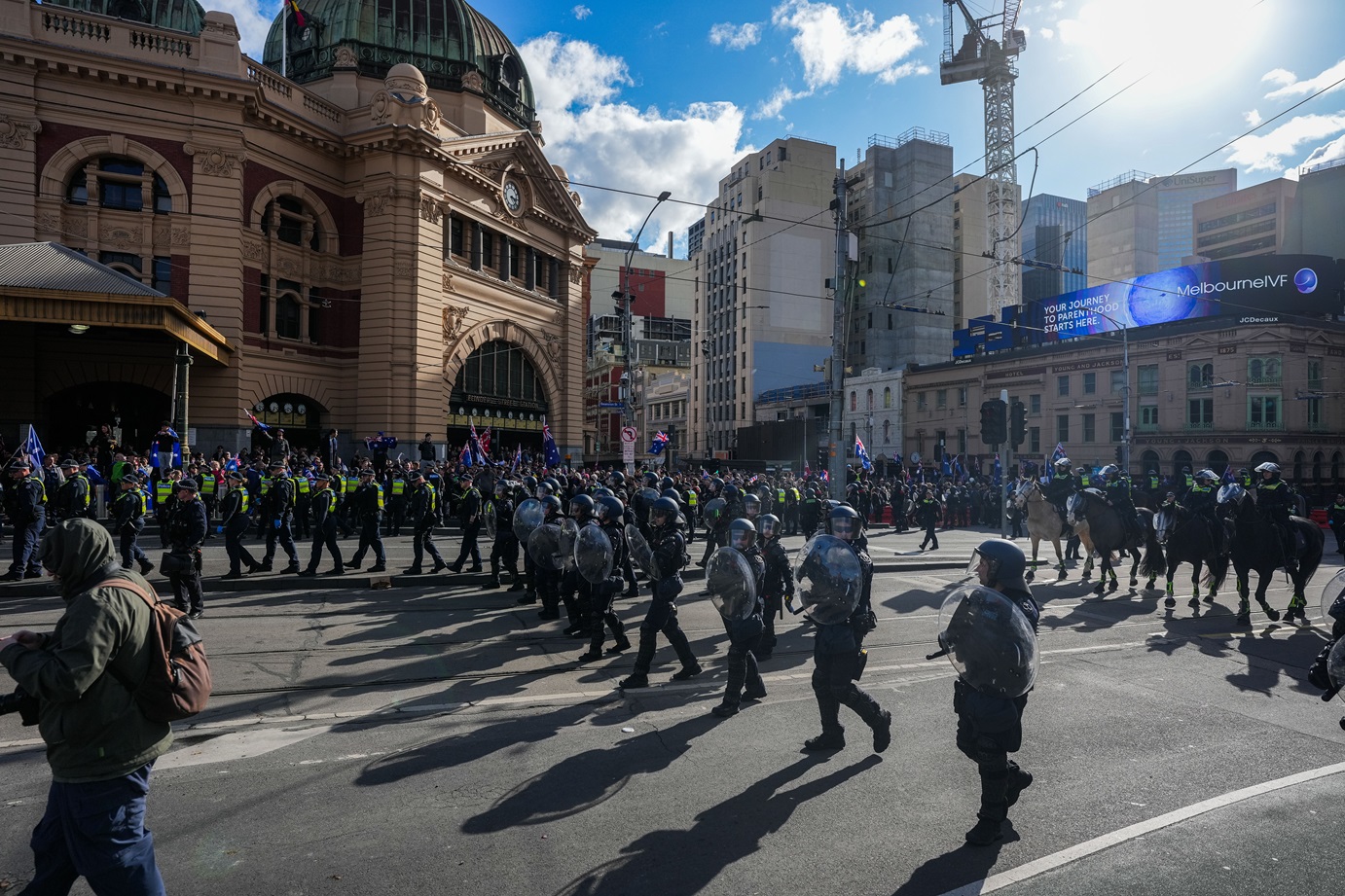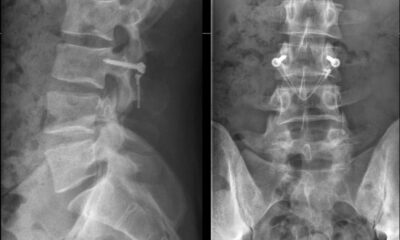Politics
Tens of Thousands Rally Across Australia Amid Far-Right Concerns

Tens of thousands of individuals gathered in major Australian cities on March 10, 2024, for the March For Australia rallies, sparking significant debate over rising far-right sentiments. Events took place in cities like Sydney, Melbourne, Adelaide, Brisbane, and Canberra, with participants including many families, dogs, and even a horse adorned with Australian flags.
While some politicians, including independent MP Bob Katter and One Nation senator Pauline Hanson, addressed attendees, the protests faced widespread condemnation as being rooted in racism and far-right ideology. Prime Minister Anthony Albanese emphasized in parliament that “diversity is a strength in modern Australia,” highlighting the economic opportunities presented by Australia’s multicultural population.
The Greens party criticized both major political parties, asserting that their past policies have contributed to the rise of far-right extremism. Deputy Greens leader Mehreen Faruqi stated, “Labor and Liberals for years have punched down on migrants and refugees.” She urged a reevaluation of their approaches to immigration, pointing to a recent Labor bill that would permit the deportation of certain former immigration detainees.
During the rallies, prominent figures associated with neo-Nazi groups delivered speeches, particularly in Melbourne and Sydney, where police estimated attendance at around 15,000 people. While speakers claimed they were not against immigrants, one made unfounded assertions about a global agenda targeting individuals of Anglo-Celtic and European descent. In contrast, Anne Aly, Minister for Multicultural Affairs, noted that such rhetoric clearly aimed at migrants from “countries that have brown people.”
She commented, “It’s very clear from the conduct that was observed… that these marches were a con by the far-right neo-Nazis to prey on some legitimate concerns.” Aly specifically referenced calls for “anti-Indian immigration,” which she characterized as overtly racist.
Opposition Leader Sussan Ley acknowledged that while many participants came with good intentions, the events were “hijacked by neo-Nazis spouting hate.” In a rare show of differing opinions within the coalition, senator Jacinta Nampijinpa Price expressed support for those marching.
The organizers of the event had previously claimed that 1,500 migrants entered Australia daily, citing data from the Australian Bureau of Statistics. However, the bureau clarified that these figures do not accurately reflect migration or population changes, but merely represent the intentions of travelers.
Former deputy secretary of the Immigration Department, Abul Rizvi, criticized successive governments for failing to communicate their immigration strategies effectively, thereby creating a void for conspiracy theories and misinformation.
While the protests in Sydney remained largely peaceful, two individuals faced charges following an altercation involving police. In contrast, violence erupted in Melbourne as anti-immigration demonstrators clashed with anti-fascist and pro-Palestinian protesters. More than 100 counter-protesters in Canberra voiced their dissent, chanting slogans aimed at denouncing far-right ideologies.
The events of March 10 have sparked a national conversation about the state of immigration policies and the growing visibility of far-right groups in Australia. As discussions continue, the government faces pressure to address the underlying concerns driving such protests while condemning extremist ideologies.
-

 World7 days ago
World7 days agoPrivate Funeral Held for Dean Field and His Three Children
-

 Top Stories2 weeks ago
Top Stories2 weeks agoFuneral Planned for Field Siblings After Tragic House Fire
-

 Sports3 months ago
Sports3 months agoNetball New Zealand Stands Down Dame Noeline Taurua for Series
-

 Entertainment3 months ago
Entertainment3 months agoTributes Pour In for Lachlan Rofe, Reality Star, Dead at 47
-

 Entertainment2 months ago
Entertainment2 months agoNew ‘Maverick’ Chaser Joins Beat the Chasers Season Finale
-

 Sports3 months ago
Sports3 months agoSilver Ferns Legend Laura Langman Criticizes Team’s Attitude
-

 Sports4 weeks ago
Sports4 weeks agoEli Katoa Rushed to Hospital After Sideline Incident During Match
-

 Politics2 months ago
Politics2 months agoNetball NZ Calls for Respect Amid Dame Taurua’s Standoff
-

 World2 weeks ago
World2 weeks agoInvestigation Underway in Tragic Sanson House Fire Involving Family
-

 Entertainment3 months ago
Entertainment3 months agoKhloe Kardashian Embraces Innovative Stem Cell Therapy in Mexico
-

 Top Stories2 weeks ago
Top Stories2 weeks agoShock and Grief Follow Tragic Family Deaths in New Zealand
-

 Sports4 weeks ago
Sports4 weeks agoJamie Melham Triumphs Over Husband Ben in Melbourne Cup Victory




















